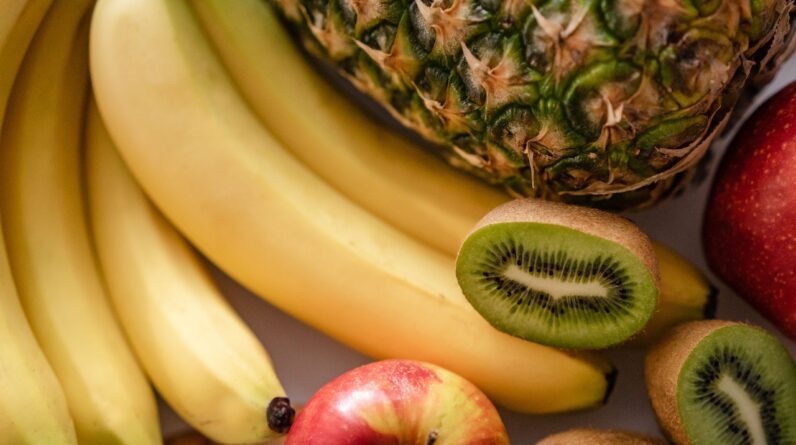
Introduction to Chest Fat: Causes and Concerns
Chest fat, often a concern for many, isn’t merely a cosmetic issue. It can also be an indicator of underlying health problems. Understanding its causes and effects can help you identify the best strategies to deal with it.
Understanding Chest Fat
Chest fat is a common issue that can affect both men and women. In men, excessive chest fat might lead to a condition known as gynecomastia, which causes swollen breast tissue.
Causes of Excessive Chest Fat
Several factors contribute to the accumulation of chest fat. These include hormonal imbalances, lack of physical activity, unhealthy diet, and certain medical conditions.
Risks Associated with Excessive Chest Fat
Excessive chest fat can lead to health issues like heart disease, diabetes, and even certain types of cancer. It can also affect one’s self-esteem and body image.
How to Get Rid of Chest Fat
Getting rid of chest fat involves a combination of dietary changes, a structured exercise routine, and lifestyle modifications.
Dietary Changes
Proper nutrition plays a pivotal role in managing chest fat.
Eating Balanced Meals
Ensure you consume a balanced diet that includes all the essential nutrients. Include lean proteins, whole grains, fruits, and vegetables in your meals.
Reducing Calorie Intake
Try to reduce your daily calorie intake. However, remember that drastic calorie reduction can lead to malnutrition and other health problems.
Exercise Routine
Regular physical activity is crucial in burning chest fat.
Cardiovascular Exercises
Cardio exercises like running, swimming, and cycling can help you burn calories and reduce overall body fat.
Strength Training
Specific strength training exercises like push-ups and chest presses can help tone the chest muscles and reduce fat.
Lifestyle Modifications
Incorporating healthy habits into your daily routine can also contribute to fat reduction. Avoid alcohol and quit smoking. Ensure adequate sleep and manage stress effectively.
Medical Interventions for Chest Fat Reduction
If lifestyle changes don’t work, you may consider medical interventions.
Liposuction
Liposuction is a surgical procedure that removes fat deposits from specific parts of the body, including the chest.
Gynecomastia Surgery
For men suffering from gynecomastia, surgery can be an option. This procedure removes excess fat and glandular tissue to achieve a flatter, firmer chest area.
In Conclusion:
Getting rid of chest fat is a journey that requires consistency, dedication, and patience. It’s not about quick fixes, but a lifestyle overhaul that will not only shape your chest but also improve your overall health.
FAQs1. Q: Can I lose chest fat through diet alone?
A: While a healthy diet can significantly contribute to fat loss, combining it with regular exercise will yield the best results.
2. Q: Are there specific exercises to lose chest fat?
A: While you can’t target fat loss in one specific area (spot reduction), combining strength training exercises, like push-ups and chest presses, with regular cardiovascular exercise can help reduce overall body fat and tone the chest muscles.
3. Q: How long will it take to lose chest fat?
A: The time it takes to lose chest fat varies for each individual, depending on their metabolic rate, diet, exercise routine, and the amount of fat to lose. It’s essential to be patient and consistent with your efforts.
4. Q: Can surgical procedures guarantee permanent chest fat loss?
A: Surgical procedures like liposuction can remove fat cells from the chest area. However, if you do not maintain a healthy lifestyle post-surgery, new fat cells can develop.
5. Q: Is chest fat a sign of an underlying health problem?
A: Excessive chest fat can sometimes indicate health issues like hormonal imbalances or certain heart diseases. If you’re concerned about your chest fat, it’s best to consult a healthcare professional.
6. Q: Can women also have excessive chest fat?
A: Yes, both men and women can have excessive chest fat. The strategies for reducing chest fat apply to everyone, regardless of gender.
7. Q: Does chest fat increase with age?
A: As we age, our metabolism slows down, and we may tend to gain weight more easily, including in the chest area. However, maintaining an active lifestyle and healthy diet can help manage weight gain.
8. Q: Is it possible to gain chest fat back after losing it?
A: Yes, it’s possible to regain chest fat if you return to unhealthy lifestyle habits. This is why it’s crucial to make sustainable changes that you can maintain in the long term.
9. Q: Can stress contribute to chest fat?
A: Yes, stress can contribute to weight gain, including chest fat. Stress can lead to overeating or unhealthy eating habits, which can result in weight gain.
10. Q: Is there a genetic predisposition to having chest fat?
A: Genetics can play a role in where your body tends to store fat, including the chest area. However, lifestyle factors also significantly contribute to weight gain and fat distribution.
Remember, health is a journey, not a destination. Stay consistent, patient, and positive, and you’ll see the results of your efforts.







